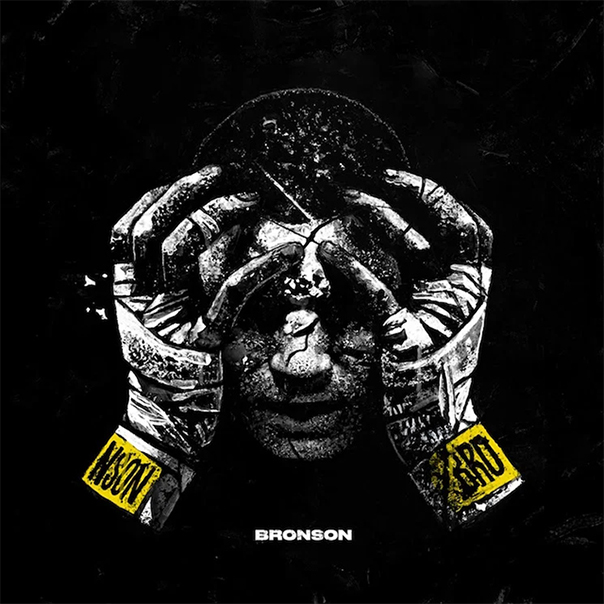ALBUM REVIEW: ODESZA and Golden Features better together as BRONSON

The echoing single bass drum kick and string-like synths that slowly launch “Foundation,” the opening track on the new collaborative album by ODESZA and Golden Features—as BRONSON—could have scored a trailer for “Jurassic World.” The aptly titled song is our doorway into a world of high vistas and deep valleys, but also of a metallic dystopia. The self-titled, mostly instrumental album is a journey from one place to the other.
Bronson
BRONSON (ODESZA & Golden Features)
Ninja Tune and Foreign Family Collective, Aug. 7
8/10
ODESZA, the wildly popular Seattle EDM production duo consisting of Harrison Mills and Clayton Knight, began working with Australian beat maker Tom Stell—better known as Golden Features—in 2018, when the majority of the music was recorded in New South Wales. Previously, the three, admirers of each others’ work, traded sonic ideas over the internet through Dropbox and FaceTime.
Their first released collaboration came that year when ODESZA procured Golden Features to remix “Falls,” from the deluxe version of their 2017 album, A Moment Apart. Stell has been much more active, releasing an EP with fellow Aussies The Presets in 2019. The duo is known for its intricately lush indietronica, chill wave and trap. Golden Features provides a sleek, dark polish. But to call BRONSON an amalgamation of the two is reductive. The album is greater than the sum of its parts. That could be due to both acts adapting to each other on the fly, the care given to the production of these 10 songs, or the tactical use of the guest vocal features, which brings additional new textures to each song, even if the lyricism is vague.
Following the literal “Foundation,” BRONSON kicks into its consistently high gear and rolls directly into “Heart Attack,” on which lau.ra—of experimental British rock band Ultraísta—delivers a crystal clear pronouncement, both literally and figuratively: “I’ve been patient/ But I won’t follow/ ‘Cause I don’t want to be your friend/ What does it matter in the end?” The song’s got an elegant, glossy finish, but the topline from lau.ra is a devastating blow.
The next feature, and newest single, has Gallant stepping in on “Know Me.” His sandy, breathy and raw singing shifts the balance in the direction of electric soul. It’s been described as being about the “complexities of connection and the subsequent realizations we come to in the aftermath.” While the story may not be so obvious, Gallant’s mixed emotions translate well as he delivers lines like, “You scratched the surface but you’re in too deep/ Paranoia might admit defeat/ So you don’t speak/ No.”
“Know Me” floats into prior single “Vaults,” one of the first songs ODESZA and Golden Features finished on its way to BRONSON. The group has said the track sets the tone for the project. Sonically and literally, it’s a midway point on the album and signals a transition to the more intense and industrial-leaning second half of the album. With banging metallic percussion and distorted, garbled vocals and glitchy synths, BRONSON enters its second act here.
Living up to the song’s namesake on the following “Tense,” the band uses clipped synths, thumping hip-hop beat and various rattles to score that bead of sweat rolling down the side of your head. They’re still making a “Matrix” sequel, right? The producers should snap up this song before some other action flick does.
Elsewhere on the album, Mills and Stell sing on the swooning “Call Out,” and heavily distorted vocal samples highlight the by-the-book “Bline.”
A guitar-like riff and distorted singing and a club-ready tempo keeps the suspense going on “Contact.” A tempo change toward the end into a slower tempo could work in a horrorcore song. Here, though, it sets up one last intimidating and dark pearl, “Blackout.” The song wouldn’t sound out of place coming from The Chemical Brothers or even The Prodigy. It’s yet another example of ODESZA and Golden Features working not only as musicians but as cinematographers. For the songs to work, BRONSON’s soundscapes need to not only be interesting but must also keep shifting in some direction, and they do.
The album concludes with the seven-and-a-half-minute-long “Dawn,” which features high-end vocals by Totally Enormous Extinct Dinosaurs, also known as London DJ and producer Orlando Higginbottom. His falsetto brings a sense of melodrama to the song, which has more in common with the first half of the album than the second, and serves as a cathartic escape from the preceding on-edge material. It’s also a kind of mirror to “Foundation,” the album opener, providing a satisfying conclusion to the sonic journey of this open-to-interpretation narrative.
Follow editor Roman Gokhman at Twitter.com/RomiTheWriter.
